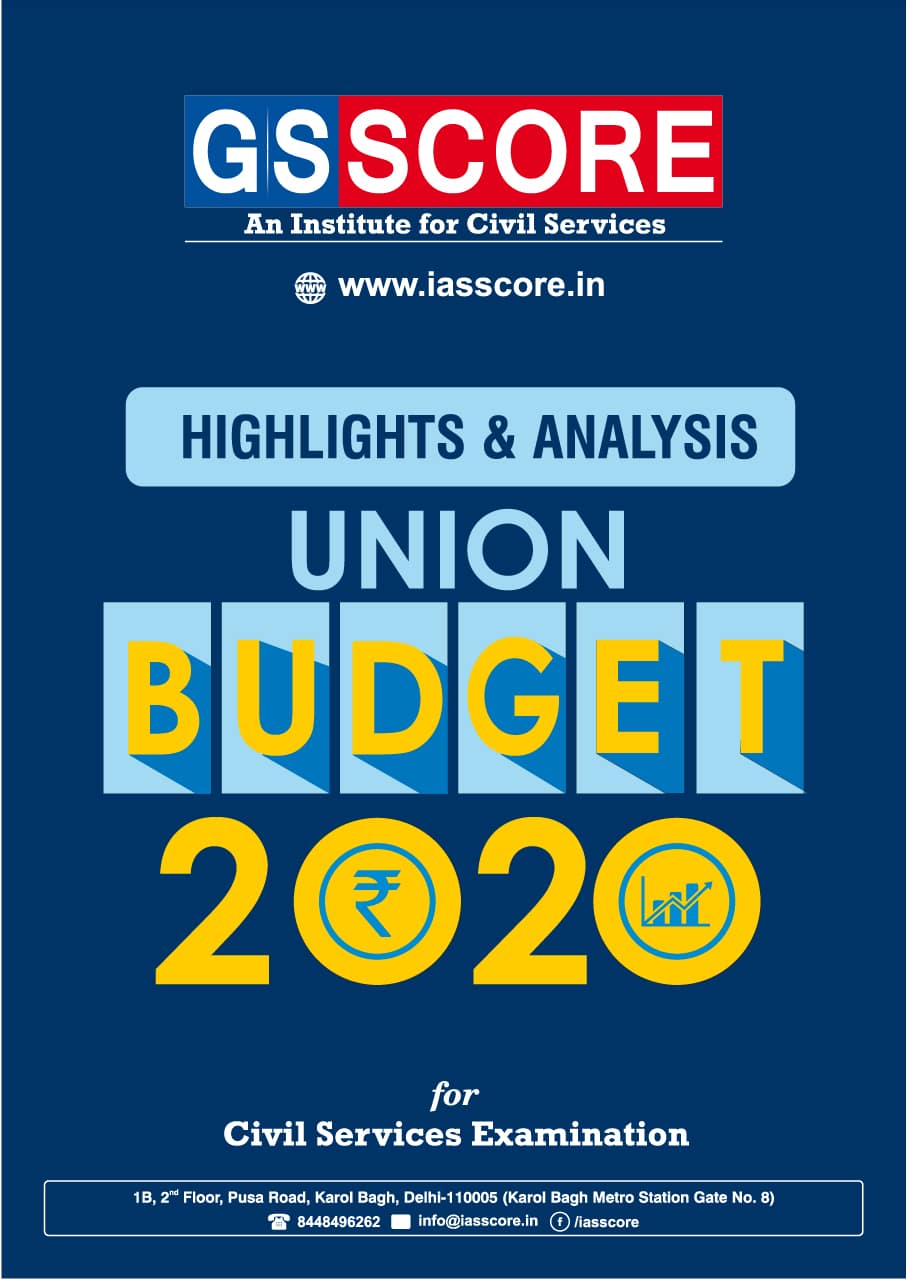


Highlight and Analysis of Budget 2020 for UPSC: Budget 2020 Highlights & Analysis
Highlight and Analysis Union Budget of India. For the 2020 Union Budget of India, see 2020 Union budget of India:-
The Union Budget of India, also referred to as the Annual Financial Statement in the Article 112 of the Constitution of India, is the annual budget of the Republic of India. The Government presents it on the first day of February so that it could be materialised before the beginning of new financial year in April. Until 2016 it was presented on the last working day of February by the Finance Minister in Parliament. The budget, which is presented by means of the Finance bill and the Appropriation bill has to be passed by Lok Sabha before it can come into effect on 1 April, the start of India's financial year.
Budgeting is the process of estimating the availability of resources and then allocating them to various activities according to a pre-determined priority. The Union Budget 2020-21 has come at a time when the nation is grappling with multiple challenges such as rising unemployment, food inflation, falling currency and de-globalization trends. Since the resources are scarce, the Union Government has tried to address these priorities using the Budget 2020-21 as an instrument.
This Budget is woven around three prominent themes:
- Aspirational India – which seeks better standards of living, access to health and education
- Economic development for all – ensuring ‘Sabka Saath, Sabka Vikas, Sabka Vishwas’.
- Caring Society – which inculcates both humane and compassionate values
We @GSSCORE have tried to simplify the Budget document for you, giving you not just the crude facts in a simplified manner but also enabling you to find relevance of the policy announcements.
Related Articles


